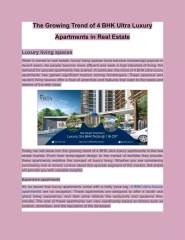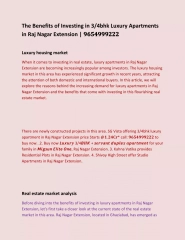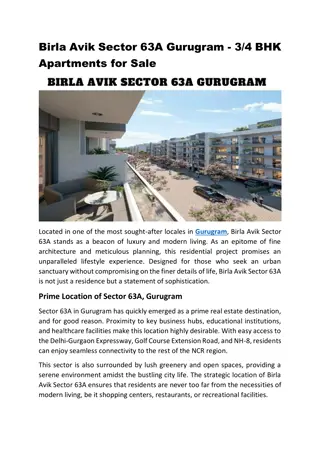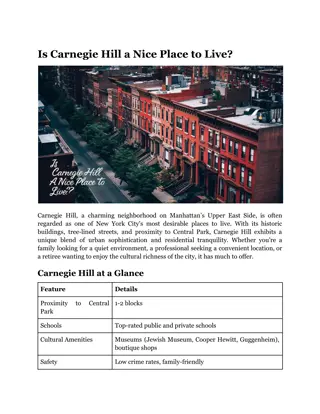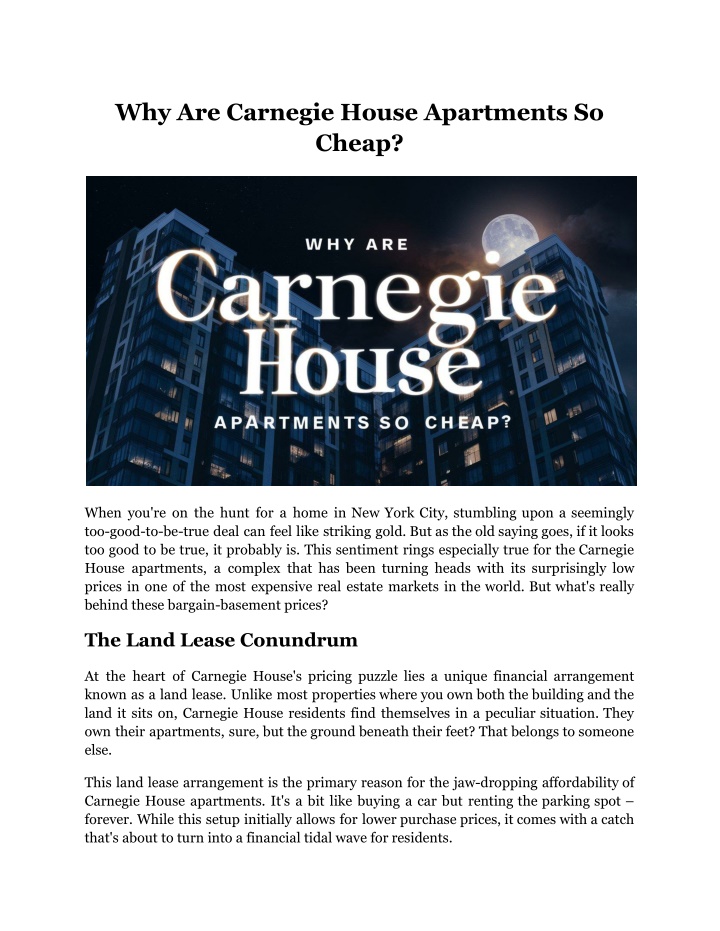
Why Are Carnegie House Apartments So Cheap?
Discover the NYC neighborhoods rich in historic brownstones and explore their timeless charm.
Download Presentation

Please find below an Image/Link to download the presentation.
The content on the website is provided AS IS for your information and personal use only. It may not be sold, licensed, or shared on other websites without obtaining consent from the author. If you encounter any issues during the download, it is possible that the publisher has removed the file from their server.
You are allowed to download the files provided on this website for personal or commercial use, subject to the condition that they are used lawfully. All files are the property of their respective owners.
The content on the website is provided AS IS for your information and personal use only. It may not be sold, licensed, or shared on other websites without obtaining consent from the author.
E N D
Presentation Transcript
Why Are Carnegie House Apartments So Cheap? When you're on the hunt for a home in New York City, stumbling upon a seemingly too-good-to-be-true deal can feel like striking gold. But as the old saying goes, if it looks too good to be true, it probably is. This sentiment rings especially true for the Carnegie House apartments, a complex that has been turning heads with its surprisingly low prices in one of the most expensive real estate markets in the world. But what's really behind these bargain-basement prices? The Land Lease Conundrum At the heart of Carnegie House's pricing puzzle lies a unique financial arrangement known as a land lease. Unlike most properties where you own both the building and the land it sits on, Carnegie House residents find themselves in a peculiar situation. They own their apartments, sure, but the ground beneath their feet? That belongs to someone else. This land lease arrangement is the primary reason for the jaw-dropping affordability of Carnegie House apartments. It's a bit like buying a car but renting the parking spot forever. While this setup initially allows for lower purchase prices, it comes with a catch that's about to turn into a financial tidal wave for residents.
The Looming Financial Storm Remember that rented parking spot analogy? Well, imagine the owner of that spot suddenly deciding to jack up the rent not by a little, but by a whopping 660%. That's essentially what's happening at Carnegie House. Currently, the building pays $4 million annually to lease the land. But hold onto your hats, because this figure is set to skyrocket to an eye-watering $30.4 million. What does this mean for residents? In simple terms, it translates to a massive increase in maintenance fees. These aren't the run-of-the-mill cost-of-living increases we're talking about. We're looking at potential hikes that could make even the most seasoned New Yorker's jaw drop. To put this into perspective, let's break down the numbers: Current Lease Annual Land Future Lease Annual Land Percentage Increase $4 million $30.4 million 660% This impending financial burden is casting a long shadow over Carnegie House, making potential buyers hesitant and current owners anxious about their investment's future. Read More Article: Where are Most Brownstones in NYC? The Ripple Effect on Property Values In the world of real estate, perception is everything. And right now, the perception of Carnegie House isn't exactly rosy. The looming lease increase and the uncertainty it brings have created a perfect storm for depressed property values. Think about it who wants to buy a property knowing they might be hit with a massive fee increase shortly? This uncertainty has turned Carnegie House apartments into a tough sell, leading to a situation where owners are often willing to accept lower prices just to offload their units before the financial squeeze hits. The Bigger Picture: Land Leases in NYC While Carnegie House's situation might seem unique, it's actually part of a larger trend in New York City. Believe it or not, there are about 100 buildings in the Big Apple operating under similar land lease arrangements. Most of these are nestled in
high-value areas like Manhattan, where land costs can make up a significant chunk of a property's price tag. This widespread use of land leases highlights a broader issue in NYC's real estate market. It's a complex dance between affordability and long-term financial security, often leaving buyers to navigate a minefield of potential risks. Residents at a Crossroads For those already calling Carnegie House home, the future looks uncertain. They're faced with a tough choice: band together to try and purchase the land outright (a monumental financial undertaking), or brace for the impact of skyrocketing maintenance fees. This dilemma has led to a flurry of activity, with many residents putting their units on the market at reduced prices. It's a classic case of trying to jump ship before it takes on too much water. But with the word out about the lease situation, finding buyers willing to take on this financial hot potato is proving to be a challenge. The Broader Implications The Carnegie House situation serves as a cautionary tale for the broader real estate market, especially in high-value areas like New York City. It underscores the importance of looking beyond the sticker price when considering a property. In a market where Carnegie Hill condos for sale can command premium prices, the Carnegie House stands out as an anomaly but not necessarily in a good way. This scenario also raises questions about the sustainability of land lease arrangements in rapidly appreciating markets. As land values continue to soar, particularly in prime locations, the potential for dramatic lease increases becomes a very real concern for buildings operating under these agreements. Read More Article: Is Creamed Honey a Rip-Off? Navigating The Choppy Waters of NYC Real Estate So, what's the takeaway from all this? For one, it's a stark reminder of the old adage: always read the fine print. In the case of Carnegie House, the devil truly is in the details of that land lease agreement. For potential buyers eyeing Carnegie Hill condos for sale, the Carnegie House situation serves as a valuable lesson in due diligence. It's not just about finding a good deal; it's
about understanding the long-term implications of your investment. Are you really saving money if you're potentially setting yourself up for financial strain down the road? Conclusion The Carnegie House story is more than just a tale of unexpectedly affordable apartments in a prime New York City location. It's a wake-up call for anyone navigating the complex world of real estate, especially in high-stakes markets like NYC. While the allure of a bargain is strong, the Carnegie House situation reminds us that in real estate, as in life, there's often no such thing as a free lunch. The key is to approach every opportunity with a critical eye, looking beyond the initial price tag to understand the full financial picture. Looking for expert guidance in navigating the complex New York City real estate market? The Bolad Team is here to help. With our deep market knowledge and commitment to client success, we'll ensure you make informed decisions that align with your long-term financial goals. Don't navigate the NYC real estate market alone partner with us for a smoother, more confident home-buying journey. Site Article: Why Are Carnegie House Apartments So Cheap?

